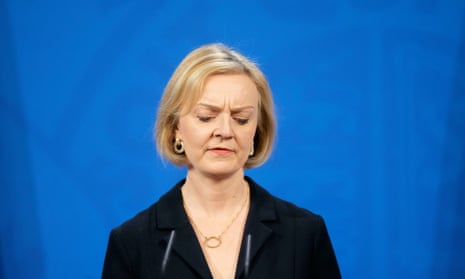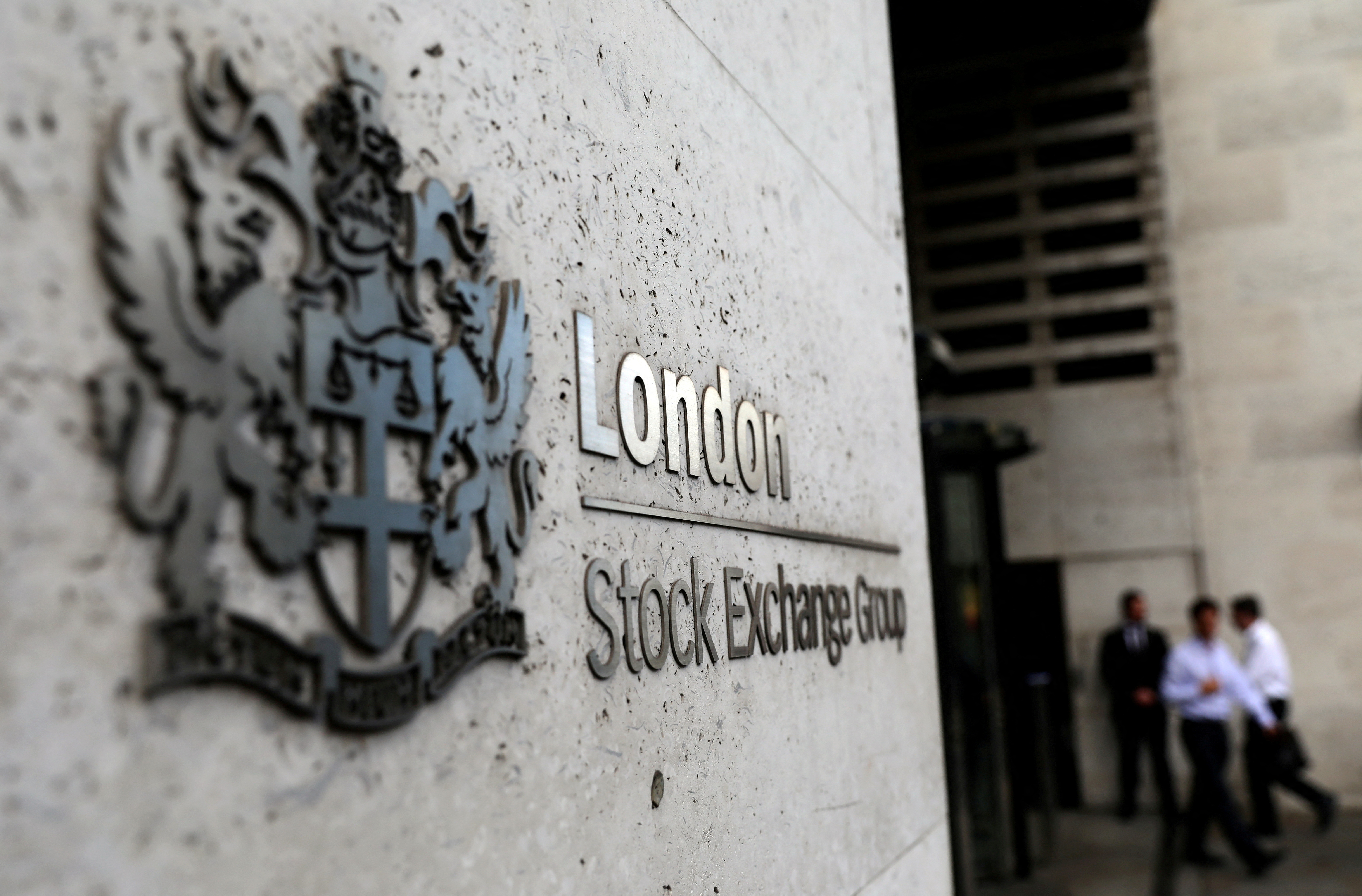The global echoes of a British near-collapse
British economic policy under Liz Truss seems certain to end the Conservative Party’s dominance, and reversing Brexit seems to be the only solution
As the world’s policymakers gather in Washington for the IMF’s annual meetings, there is a historical curiosity to consider. Roughly every 15 years since the 1930s, Britain has experienced an autumn financial crisis and policy regime change that has foreshadowed global upheavals a few years later.
Britain abandoned the gold standard in September 1931; the US followed in 1933. The sterling devaluation of September 1949 ended post-World War II hopes of a genuinely multilateral currency system and confirmed the dollar’s hegemony. The second post-war sterling devaluation, in November 1967, triggered a chain reaction that culminated in then-US president Richard Nixon dismantling the Bretton Woods currency system in 1971. Britain’s IMF bailout in September 1976 discredited Keynesian economics and led to the election of Margaret Thatcher as prime minister, inspiring the monetarist revolution of then-US Federal Reserve chairman Paul Volcker and then-US president Ronald Reagan. The breakup of the European exchange-rate mechanism on “Black Wednesday” in September 1992 forced France, Italy, Spain and Greece to accept Germany’s economic dominance of Europe. The run against Britain’s most aggressive mortgage lender, Northern Rock, in September 2007, became a template for the global financial crisis a year later.
Britain has just suffered its latest financial convulsion. The near-collapses of the pound, the country’s government bond market and its pension system are likely to echo around the world in several unexpected ways.
Last month, I argued that Britain’s Conservative Party had outdone itself by finding in Liz Truss a prime minister even worse than Boris Johnson, Theresa May or David Cameron.
However, I also asked a paradoxical question about the politically disastrous experiment with “Trussonomics.” Was it possible that Truss’ bet on 1970s-style Keynesian stimulus and price controls might succeed, at least in the short term? Could some modified version of Britain’s unorthodox mixture of fiscal stimulus, price caps and energy subsidies become a model for other countries desperately trying to revive collapsing economies while keeping inflation at least temporarily under control?
Today it seems preposterous to suggest that Britain could become a model for economic revolution, as it did under Thatcher. Yet, looking beyond Truss’ political blunders, there are four features of her new economic policy that other countries could consider if they ever stop laughing at Britain:
First, the top priority for economic policy in a time of war and international energy upheavals might be to avert deep recessions, rather than worrying about inflation targets and debt dynamics.
Second, under such conditions, inflation might be better managed with price controls and fiscal subsidies than with tight money.
Third, a policy mix of bold fiscal expansion and moderate monetary tightening might succeed in avoiding an economic slump for a year or two and prepare the ground for an orderly tightening of monetary policy in the longer term.
Fourth, when inflation and debt levels increase unexpectedly, fiscal sustainability can become easier, not harder, to achieve.
All four of these statements are heretical, according to current economic orthodoxy. Yet all can be backed by plausible economic arguments and historical examples, albeit with plenty of counterarguments and counterexamples.
Consider “fiscal sustainability.” Suppose a government with 1 percent growth and 2 percent inflation aims for a debt-to-GDP ratio of 60 percent. Simple arithmetic shows that the government must keep its deficit below 1.8 percent of GDP to meet this definition of “fiscal sustainability.” Now suppose that growth is 1 percent, but inflation accelerates to 4 percent and the debt-to-GDP ratio rises to 90 percent. In that case, the government can borrow up to 4.5 percent of GDP and still keep the debt ratio unchanged.
However, if there were plausible arguments for Britain’s new policies, why did they plunge financial markets into turmoil? The reason might lie in astonishing political and institutional blunders that almost guarantee the end of a long Conservative hegemony in British politics.
By combining a useful Keynesian stimulus with an economically irrelevant and politically toxic abolition of Britain’s top tax rate, Truss gave the impression that the new government’s true objective was to redistribute income from poor people to rich people. By insisting, without evidence, that her tax cuts would boost Britain’s long-term growth trend, rather than simply promising to avert a disastrous slump caused by the Ukraine war, she exposed herself to economic derision and set herself up for political failure when her supply-side miracle fails to happen.
Truss also needlessly alienated Britain’s entire government establishment. She fired Britain’s most powerful civil servant, the permanent secretary of the Treasury, for no good reason. She refused to allow an objective analysis of her plans by the Office of Budget Responsibility, which would normally be a legal requirement for any budget. She also ridiculed the Bank of England’s monetary management. After these unprovoked attacks on Britain’s longstanding tradition of nonpartisan public service, Treasury and Bank of England officials might not have been too distressed by the market turmoil last month.
Because of all these blunders, pollsters are now near-unanimous that the Conservatives are likely to lose the next election.
Throughout British history, the party in power has always lost it after financial crises, even those that were followed by decent economic recoveries. This pattern is likely to be repeated in the coming two years.
Suppose, as I think is likely, Britain avoids the economic collapse that many observers now consider inevitable and, using energy subsidies and price controls, squeezes inflation back to tolerable levels — not to the 2 percent official target, but to 4 or 5 percent. By next summer, other countries stuck in recession might start looking with interest at Britain’s heterodox economic experiment, but inside Britain, Truss will get no credit for averting a short-term economic catastrophe, because she never presented that as her main objective. Instead, she will face ridicule for breaking her impossible promise to achieve sustained supply-side growth.
Meanwhile, the opposition parties would be preparing for government, and would need to propose alternative policies for achieving the long-term growth that the Tories failed to deliver.
With fiscal leeway exhausted by Truss’ tax cuts and inflation still a serious problem, there is no serious prospect of alternative policies based on more public spending, but any non-Conservative government that emerges from the next election could offer one completely credible policy that would instantly improve Britain’s growth prospects with no budgetary costs: Restore cooperation with its overwhelmingly dominant trading partner, the EU.
This would not mean reversing Brexit. It would mean negotiating a new customs union, aligning British regulations with the EU single market and gradually moving toward a closer relationship with the bloc, similar to Swiss and Norwegian arrangements. A month ago, this would have been a fantasy, but stranger things are now happening in Britain almost every day.
Anatole Kaletsky is chief economist and co-chairman of Gavekal Dragonomics. Copyright: Project Syndicate










:format(jpeg)/cloudfront-us-east-1.images.arcpublishing.com/tgam/D3EPKU4TD5MUVFABPVYYFHJN7U.jpg)

